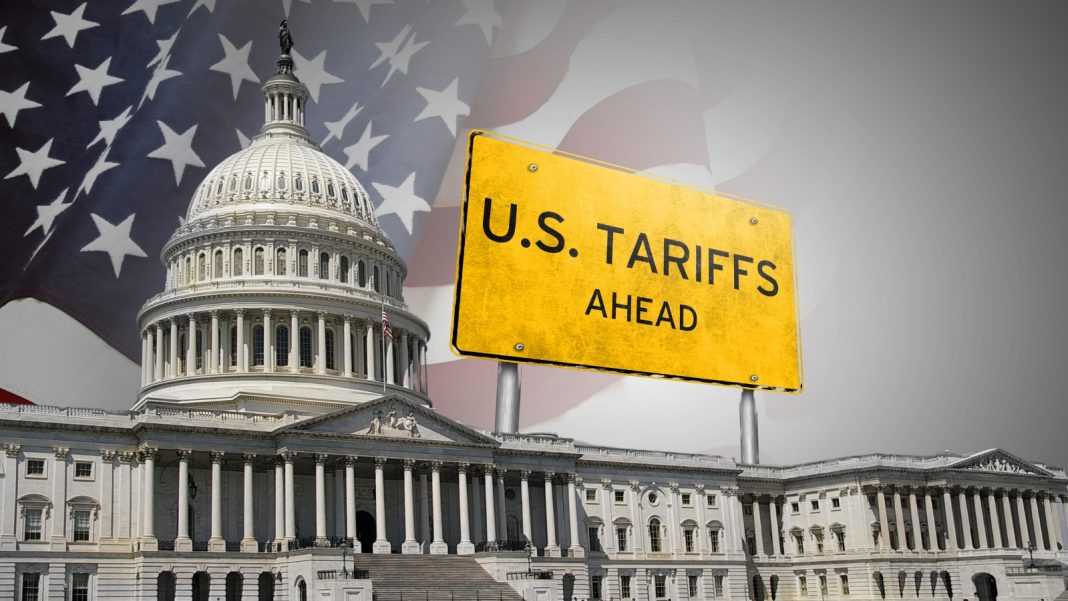How They Could Impact Real Estate and Investments
President Donald Trump has recently announced the implementation of new tariffs targeting several countries, effective immediately. These measures include a 25% tariff on imports from Mexico and Canada, and a 10% tariff on imports from China. The administration cites concerns over illegal fentanyl imports and unauthorised immigration as primary reasons for these actions. apnews.com
What are the potential impacts of these tariffs and a possible trade war on Asia, especially Malaysia?
If Trump’s new tariffs escalate into a full-blown trade war, Asia—including Malaysia—will face both direct and indirect economic impacts. Here’s a breakdown of potential consequences:
1. Immediate Impact on Malaysia
- Trade Disruptions: Malaysia’s economy is export-driven, with key sectors like electronics, palm oil, and manufacturing relying heavily on international markets. Any slowdown in global trade will hurt exports.
- Ringgit Volatility: Uncertainty in global markets could weaken the Malaysian ringgit (MYR) as investors shift to safe-haven assets like the US dollar (USD).
- Supply Chain Disruptions: Many Malaysian companies supply components to larger manufacturers in China and the US. If tariffs increase costs for these firms, demand for Malaysian goods could drop.
2. Sector-Specific Impacts
- Electronics & Semiconductors: Malaysia is a major player in the global semiconductor supply chain. If the US and China impose more tariffs on tech products, Malaysian manufacturers (such as those in Penang) might see reduced orders.
- Palm Oil & Commodities: If global economic growth slows due to trade disruptions, demand for commodities like palm oil could decline, impacting Malaysian exporters.
- Automotive & Manufacturing: If Trump’s tariffs affect steel and aluminum imports, Malaysian manufacturers might face higher production costs, reducing competitiveness.
3. ASEAN & Regional Effects
- Diversion of Investments: A prolonged trade war could push more companies to relocate from China to Southeast Asia, benefiting Malaysia, Vietnam, and Indonesia. However, if tariffs expand to ASEAN countries, the entire region could suffer.
- Supply Chain Realignments: As businesses seek to bypass tariffs, Malaysia could benefit as a transshipment hub, but only if US policies don’t tighten rules against rerouted Chinese exports.
4. Geopolitical & Long-Term Economic Impact
- Increased Protectionism: If Trump continues targeting international trade, countries may retaliate, making global trade less predictable and more expensive.
- Impact on Foreign Direct Investment (FDI): Companies may delay expansion plans in Malaysia if global uncertainty persists.
- Stronger China-Malaysia Ties? If the US pressures China further, Malaysia might deepen economic ties with China, securing more trade deals but increasing dependence on Beijing.
How Malaysian Investors & Businesses Can Prepare for a Trade War
With Trump’s new tariffs potentially leading to a broader trade war, Malaysian investors and businesses must take proactive steps to safeguard their interests. Here’s a strategic approach:
For Businesses
1. Diversify Export Markets
- Reduce reliance on the US and China by expanding into ASEAN, the Middle East, and Europe.
- Leverage Malaysia’s trade agreements like RCEP (Regional Comprehensive Economic Partnership) and CPTPP (Comprehensive and Progressive Agreement for Trans-Pacific Partnership).
2. Strengthen Local & Regional Supply Chains
- Source more raw materials and components locally to reduce dependence on tariff-affected imports.
- Form partnerships with suppliers in Vietnam, Thailand, and Indonesia to spread risk.
3. Move Up the Value Chain
- Instead of producing low-margin goods, invest in automation, AI, and high-tech manufacturing to stay competitive.
- Explore new industries like renewable energy (solar panels), biotech, and fintech to reduce reliance on traditional exports.
4. Optimize Currency & Trade Risk Management
- Use hedging strategies like forward contracts to mitigate currency fluctuations.
- Negotiate contracts with suppliers in multiple currencies (USD, MYR, CNY) to spread risks.
5. Watch for Foreign Business Relocations
- Some US and China-based manufacturers may relocate to Malaysia to avoid tariffs.
- Businesses should position themselves to attract FDI by offering incentives, local partnerships, and supply chain solutions.
For Investors & Property Buyers
Read about Trump’s New Tariff Impact on Malaysian Real Estate
1. Stay Cautious with Export-Dependent Stocks
- Technology, semiconductor, and palm oil stocks may face short-term pressure.
- Glove and healthcare stocks could remain resilient due to steady demand.
- Monitor how Malaysian-listed companies with China/US exposure react to tariffs.
2. Invest in Defensive Sectors
- Sectors like consumer staples, utilities, and healthcare tend to be more stable during economic uncertainties.
- Consider gold, REITs, and dividend-paying stocks for passive income and stability.
3. Monitor Ringgit & Foreign Exchange Trends
- If the trade war escalates, the ringgit could weaken, making USD-denominated investments more attractive.
- Hold some assets in gold, foreign currency accounts, or international funds for diversification.
4. Keep an Eye on the Property Market
- If the economy slows, interest rates may be lowered, making property investments more attractive.
- MM2H (Malaysia My Second Home) investors from China and other affected countries may shift to Malaysia for stability, boosting high-end real estate.
Opportunities Amid the Crisis
Not all trade wars are bad for Malaysia. If businesses and investors stay ahead of market trends, Malaysia could benefit from supply chain shifts and new foreign investments.
Read about Trump’s New Tariff Impact on Malaysian Real Estate


